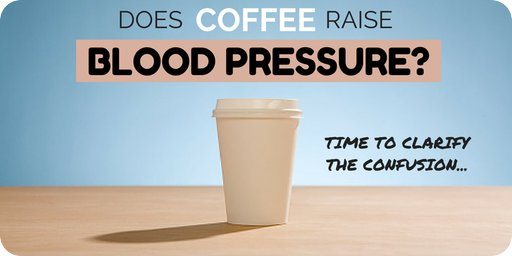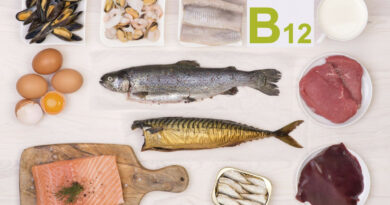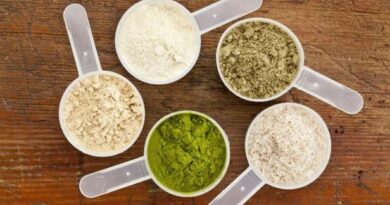Can Coffee Cause High Blood Pressure
It’s no secret that coffee is one of the world’s most popular beverages. But did you know that coffee can also cause high blood pressure? That’s right, coffee can temporarily increase your blood pressure.
While this may not be a big deal for some people, it can be dangerous for others. If you have high blood pressure, or are pregnant, you should avoid drinking coffee.
Does caffeine cause high blood pressure?
If you’re a coffee drinker, you may be wondering if your habit is affecting your blood pressure. The answer is maybe. Coffee can temporarily raise blood pressure, but it’s not likely to cause long-term high blood pressure.
While there is some evidence that coffee may contribute to high blood pressure, it’s not clear exactly how or why this happens. It’s possible that the caffeine in coffee could be to blame, as it can increase heart rate and constrict blood vessels. However, other compounds in coffee may also play a role.
If you’re concerned about how coffee is affecting your blood pressure, talk to your doctor. They can help you determine if you need to make any changes to your diet or lifestyle.
Caffeine High Blood Pressure Symptoms
If you’re like most people, you probably enjoy a cup of coffee or tea in the morning to help wake yourself up. But did you know that caffeine can also cause high blood pressure?
Caffeine is a stimulant that helps to increase alertness and energy levels.
However, it can also cause your blood vessels to constrict, which can lead to increased blood pressure.
If you already have high blood pressure, you should be especially careful about consuming caffeine. Even small amounts of caffeine can cause your blood pressure to spike.
If you’re concerned about how much caffeine you’re consuming, there are a few things you can do to cut back. For example, switch to decaf coffee or tea, or limit yourself to one cup per day. You can also try avoiding caffeine altogether by switching to herbal teas or drinking water instead.
Can I Drink Coffee While on Blood Pressure Medication
It’s no secret that coffee is one of the most popular drinks in the world. But if you’re one of the millions of people who take blood pressure medication, you may be wondering if it’s safe to drink coffee. The answer isn’t always clear cut, but here’s what you need to know about drinking coffee while taking blood pressure medication.
First, it’s important to understand how blood pressure medication works. Most blood pressure medications are designed to lower your blood pressure by relaxing your blood vessels and/or decreasing the amount of salt in your body. This can help reduce your risk of heart disease and stroke.
However, caffeine can also cause your blood vessels to constrict and raise your blood pressure. So if you’re taking a blood pressure medication that lowers your blood pressure by relaxing your vessels, drinking coffee could counteract the effects of the medication.
That said, every person reacts differently to caffeine, so it’s hard to say definitively whether or not you should avoid coffee while taking blood pressure medication.
If you’re concerned about how caffeine might affect your blood pressure, talk to your doctor or pharmacist. They can help you determine whether or not drinking coffee is likely to interfere with your medication.
Does Decaffeinated Coffee Raise Blood Pressure
Decaffeinated coffee does not raise blood pressure. This is because decaffeinated coffee contains very little caffeine. Caffeine is a stimulant that can cause an increase in blood pressure.
Therefore, drinking decaffeinated coffee will not have the same effect on blood pressure as drinking caffeinated coffee.
Does Caffeine Raise Blood Pressure Reddit
Caffeine is a stimulant that can have an impact on many different systems in the body, including the cardiovascular system. While caffeine does not necessarily raise blood pressure directly, it can cause changes in blood pressure by affecting how the body responds to stress. In general, caffeine can make the body more sensitive to stressors and can also increase heart rate and blood pressure.
While these effects are usually temporary and not harmful, they may be problematic for people with underlying medical conditions such as hypertension. If you have high blood pressure, or are taking medications that affect blood pressure, you should talk to your doctor about whether or not caffeine is right for you.
Caffeine Effect on Heart Rate And Blood Pressure
A lot of people enjoy drinking caffeine, whether it’s in the form of coffee, tea, or energy drinks. But did you know that caffeine can also have an effect on your heart rate and blood pressure?
Here’s how it works: Caffeine is a stimulant that increases your heart rate and constricts your blood vessels.
This can lead to an increase in blood pressure. However, the effects of caffeine on heart rate and blood pressure vary from person to person. Some people may be more sensitive to the effects of caffeine than others.
If you have high blood pressure or a heart condition, you should be cautious about consuming caffeine. It’s important to speak with your doctor before adding caffeinated beverages to your diet. They can help you determine if caffeine is safe for you and what the best intake level would be.
In general, moderate amounts of caffeine are unlikely to cause problems for most people. But it’s still important to be aware of how caffeine affects you personally.
Does Caffeine Increase Heart Rate
While it’s true that caffeine can have an effect on heart rate, the link is far from clear. There is some evidence to suggest that caffeine may cause a short-term increase in heart rate, but the effects are generally mild and don’t last long. In fact, most of the research on this topic has been inconclusive.
So, what does that mean for coffee lovers? If you’re concerned about your heart health, it’s probably best to moderate your intake of caffeinated beverages. But if you enjoy the occasional cup of coffee or tea, there’s no need to worry – the evidence suggests that your daily dose of caffeine isn’t likely to do any harm.
Does Caffeine in Tea Raise Blood Pressure
We all know that caffeine is a stimulant. But did you know that it can also raise your blood pressure? That’s right, if you’re consuming caffeine from sources like tea, coffee, or even chocolate, you may be putting yourself at risk for hypertension.
How does caffeine raise blood pressure? Caffeine works by stimulating the nervous system. This increases the heart rate and constricts blood vessels.
This can lead to an increase in blood pressure.
If you have high blood pressure, or are at risk for developing it, you should limit your intake of caffeinated beverages. If you do drink them, make sure to monitor your blood pressure closely.
And remember, moderation is key!
Can Energy Drinks Cause Long-Term High Blood Pressure
High blood pressure is a serious condition that can lead to heart disease, stroke, and other health problems. While there are many factors that can contribute to high blood pressure, recent research has suggested that energy drinks may be one of them.
Energy drinks are popular among young people, and their consumption has been on the rise in recent years.
These drinks are often high in caffeine and sugar, which can cause a spike in blood pressure. A new study has found that just one energy drink can increase blood pressure and keep it elevated for several hours afterwards.
While more research is needed to confirm these findings, it’s important to be aware of the potential risks of energy drink consumption.
If you have high blood pressure or are at risk for developing it, you should limit your intake of these beverages.

Credit: www.medicalnewstoday.com
How Much Can Coffee Raise Your Blood Pressure?
If you’re like most people, coffee is a part of your daily routine. You might not even think twice about brewing a cup first thing in the morning. But if you have high blood pressure, you might want to reconsider your coffee habit.
Caffeine can cause a short-term increase in blood pressure by as much as 10 mm Hg. That’s not enough to cause concern for most people. But if you already have high blood pressure, it could make your condition worse.
How does caffeine affect blood pressure? Caffeine stimulates the nervous system, which can cause your heart to beat faster and your blood vessels to narrow. These effects can lead to an increase in blood pressure.
Not everyone is affected by caffeine in the same way. Some people are more sensitive to its effects than others. And factors such as age, weight and overall health can play a role in how caffeine affects blood pressure.
If you have high blood pressure, talk to your doctor about whether you should limit or avoid caffeine altogether.
How Long Does Caffeine Raise Your Blood Pressure?
It is a common misconception that caffeine raises blood pressure. In fact, it is the opposite. Caffeine actually lowers blood pressure by relaxing the walls of your arteries and veins, making it easier for your heart to pump blood.
The effects of caffeine on blood pressure are temporary and last for about an hour or two after you consume it. So if you’re looking to keep your blood pressure in check, you may want to limit your caffeine intake.
Will Quitting Coffee Lower Blood Pressure?
It is a common misconception that quitting coffee will lower blood pressure. While it is true that caffeine can cause a temporary increase in blood pressure, this effect is short-lived and does not last long-term. In fact, regular coffee drinkers actually have lower rates of hypertension than those who do not drink coffee at all.
So if you’re looking to lower your blood pressure, quitting coffee is not the way to go.
Can Drinking Coffee Everyday Cause High Blood Pressure?
If you have high blood pressure, you may be wondering if coffee is off-limits. After all, caffeine can cause your blood pressure to rise. But that doesn’t mean you have to give up your morning cup of joe.
In moderation, drinking coffee isn’t likely to cause high blood pressure.
Coffee is a rich source of caffeine, a stimulant that has been shown to temporarily increase blood pressure levels. Caffeine can cause your systolic blood pressure (the top number in a blood pressure reading) to rise by 3–14 mm Hg and your diastolic blood pressure (the bottom number) by 4–13 mm Hg .
These changes usually last for a few hours after you finish drinking the coffee.
However, it’s important to keep in mind that these effects are temporary and tend to dissipate over time with regular coffee consumption. In fact, one large study found that people who drank moderate amounts of coffee (3-5 cups per day) had no increased risk of developing high blood pressure compared to those who didn’t drink any coffee at all .
So if you’re concerned about your caffeine intake and its effect on your blood pressure levels, moderate your consumption and monitor how you feel afterwards. And remember, there are many health benefits associated with drinking coffee , so don’t feel guilty about enjoying a cup or two each day!
Conclusion
High blood pressure is a medical condition in which the force of your blood against your artery walls is too high. Many people drink coffee regularly without experiencing any adverse effects on their blood pressure. However, some people may be more sensitive to the effects of caffeine and may experience an increase in their blood pressure after drinking coffee.
If you have high blood pressure, you should speak to your doctor about whether or not you should limit your intake of coffee.




